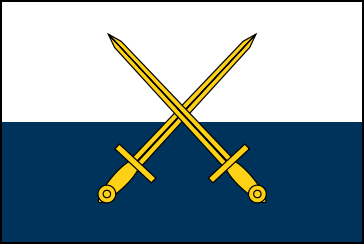
The silver rain Republic is a merchant republic, so named for the vast wealth that passes through the docks and seas of it's jurisdictions.
The lands of the republic spans many villages, trade posts, islands, and cities along the coast. All having a special group of guards to patrol the waters for piracy and other threats from the deep. In Duirt, this is the Port Authority. Silver Rain Republic History
Factions within the Silver Rain Republic
Silverite Power Structures
The Silver Rain Republic has no large continuous landmass, but rather is comprised of many islands villages, coastal cities, harbour enclaves (such as the one in Duirt) and trade posts. Each has a high level of autonomy.
Within the Silver Rain Republic, there are noble houses who each control their own trade fleets, and who have interests in different parts of the republic, together creating a complex network of alliances and cooperations. As such, Silverite Houses don't have large area's of land as South Voran or Ecclesian Houses do, but rather have influence in many different smaller area's.
The houses elect both local and global leaders, with every adult male family member being allowed to vote. Female family members do not have a vote in the election, but regardless generally hold a lot of influence, as their families take their views seriously.
It is customary though not spoken of that votes are bought and sold – this fits with the idea that if a house is not rich enough to buy the votes, they aren't good enough to rule. Moreover, houses often sell their votes as a whole, rather than allowing someone to barter with each of them individually. This means that houses with more sons can gain more wealth from selling votes, as they have more, and as such, producing sons is especially relevant for merchant families, since more sons means more votes in the election.
Small localities usually elect a single local leader often referred to as a Governor, while large enclaves, such as the one in Duirt, have a Council of elected elders to run it. On the global scale, a leader called the Doge is elected every three years, who makes his own government (usually with figures from other houses who are called Ministers) and sets the longer term goals of the greater Republic.
Leaders of merchant houses are called Lords. Because area's within the Silver Rain Republic are highly autonomous, and fortunes of the merchant families rest upon their economic success, there are no hierarchies of ranks and titles – such a hierarchy wouldn't be able to keep up with the waxing and waning fortunes of commerce.
There are no lower noble families in the republic, but Silverite Houses may adopt people into their house. These people do not get a vote and their children aren't generally considered nobility, but they are considered nobles for legal purposes and usually hold great influence. Moreover, noble houses often support different merchant companies, which serve a very similar role to minor houses.
Merchant Families within the Silver Rain Republic are generally the most powerful compared to their nation, though they are not significantly more or less powerful compared to other noble houses.
Nobles in the Silver Rain Republic
The Silver Rain Republic is ran by noble houses. In the city of Duirt, there are five Silverite noble houses present, namely House Atianna, House Groas, House Merout, House Reant and House Xueris. Their leaders are called Lords, though in principle a woman could also head a house, it just doesn't happen very often.
Houses consist of the House leader and his wife and children / grand-children, plus uncle's, aunts, cousins and so on, though only the House leader holds direct power.
Succession in the Silver Rain Republic follows the rules of Tanistry. When the head of a house dies, all male family members, and all leaders of subordinate Merchant Companies, vote together which of the family members becomes the new head of the house. Usually this is one of the older men in the family, but this is not required and any member of the family can be elected. In theory, even those who married into the family can be elected, but this almost never happens.

